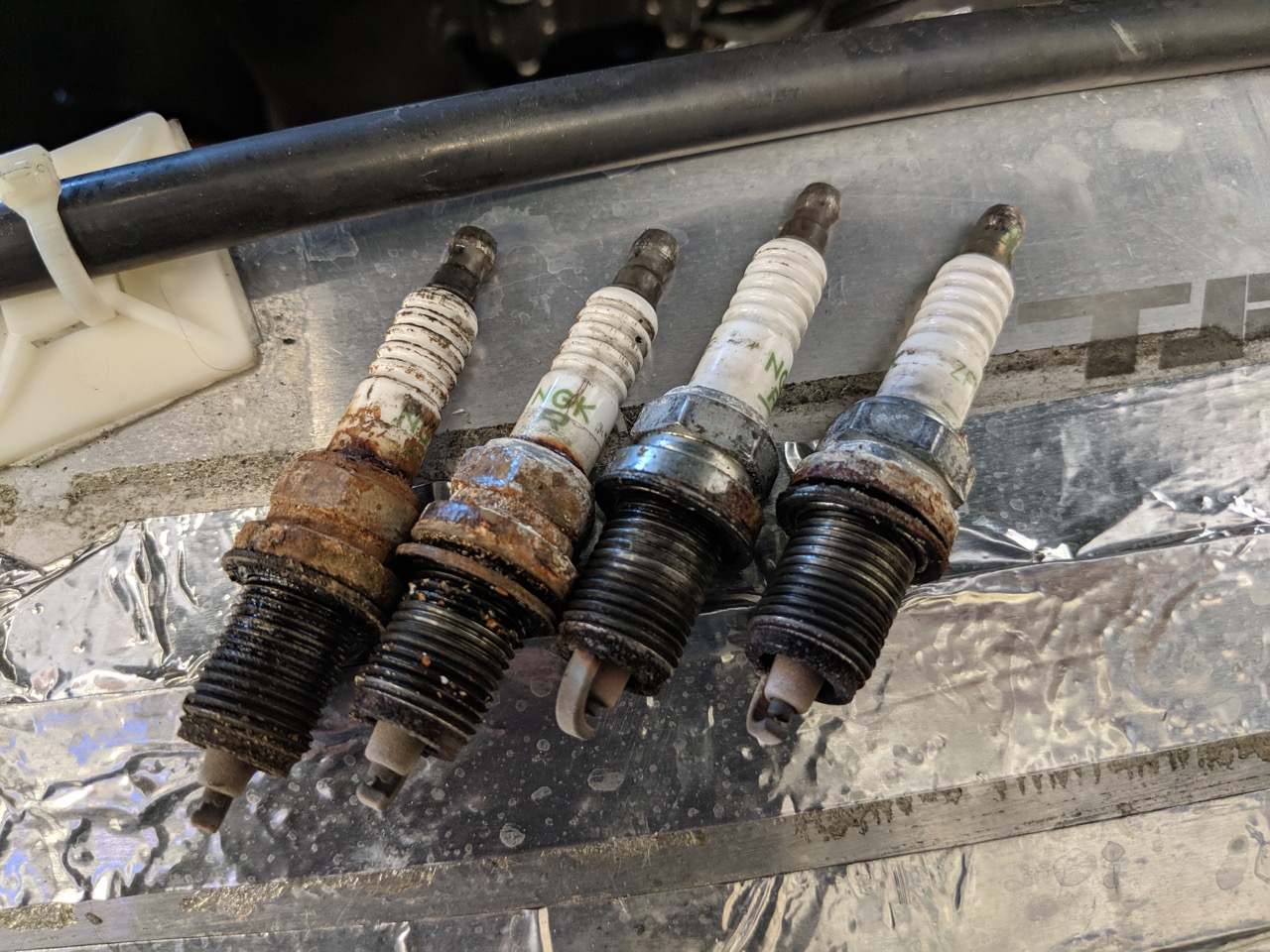I'm looking to find ways to loose weight on my autocross/track day 1993 MR2. My bright idea is to replace the engine lid with a Carbon Fiber one I found online. The problem is: It seems like it has a lot of heat/vent slots that would let a ton of rain water pour down on the engine bay. This car only sees about 1,000 miles a year, but I autocross/track day rain or shine, so I don't want to be worried that some electronics will get soaked and leave me stranded. I checked out the existing factory engine lid, and it weirdly seems to channel the rain water directly to the diagnostic port, so I don't know what is right anymore....
Pic of proposed hood and factory hood for reference.

I have run both my 94 and 95T without engine lid in the rain, and nothing happened. Of course it isn't adviseable always
also the under side of the mr2 engine lid- lots of people remove that part and run it more open
my Elise engine lid is even less protection than my mr2, and never had any issues in heavy rain

_
Dork
12/29/19 2:26 p.m.
What temp does water disintegrate? What temp does your engine run? You'll be fine. Just don't dump water into the bay when the engine is still hot. So you'd want to be careful during torrential downpours and car washing.
I was under the impression that it was standing water to watch out for
Can someone confirm this?
Under hood electronics are mildly waterproofed. Not enough that you can nail them with high pressure for long periods, but they’ll deal with rain without a problem.
We get this question about vented hoods all the time. I once parked my car on the front lawn with the sprinkler running for a few hours to prove the point. It didn’t affect the car at all.

codrus
UberDork
12/29/19 3:00 p.m.
I suspect it depends a lot on how often it gets wet, how long it sits while wet, and how often it's driven.
Random anecdote: last year my Miata blew a power steering hose and sprayed the engine bay with power steering fluid, so after fixing the hose I used one of those "foamy engine cleaner" things to wash it. Instructions called for getting the engine hot, spraying it with the stuff, letting it sit for a bit, then rinsing and idling for a while to dry.
So I did that, but after this I was kind of burned out on the car (it had been failing at the track a lot), so it sat for a few months. Occasionally getting started and moved around, but not really driven. When I did take it out again it started and ran fine, but as soon as I got into boost or above 4000 RPM it fell on its face. Took the plugs out and found this:

(Those had been new plugs with a couple thousand miles on before that).
So empirically, there are at least some cases in which getting the Miata wet underhood is going to do bad things to it. It's likely that mine was exacerbated by the aftermarket plug wires (they had boots, but perhaps don't seal as well as OEM ones) and by the car not getting driven enough to boil that water out.
It probably also depends on exactly what gets wet. The usual Miata hood vents like Keith mentions are usually at the front and on the sides, rather than being directly over the valve cover.
Actually, the hood I had on had vents in the center, but it didn’t dump straight into the valve cover. This was back in 2003 or so.

With a four valve engine and spark plugs in the middle of the cylinder, there is always a risk of getting water down the spark plug tubes.
What he said. Leads to misfires and damaged plug wires and spark plugs after the ignition voltage/current cuts a new path down the side of the outside of the plug. I've never successfully un-carbon tracked a plug or boot.
And distributors generally do not like getting wet.
Does a 1993 MR2 have a distributor? I thought about mentioning those, but we were talking about modern cars :) I know Miatas have boots on the top of the plug wires to prevent water incursion on anything short of submersion or over-enthusiasm with a pressure washer.
Old cars just need to keep the dizzy dry, and if they get wet that's what WD40 is really for :)

You can also use Liquid Wrench...

To be honest I was thinking 4AGE engine, but seeing now that it's a 5SFE... I still can't remember if they had distributors or not that long ago.
In reply to codrus :
The rust is not the problem, the dirt on the insulator is.
Knurled. said:
To be honest I was thinking 4AGE engine, but seeing now that it's a 5SFE... I still can't remember if they had distributors or not that long ago.
Yes it has an old school distributor, rotor and cap.




































